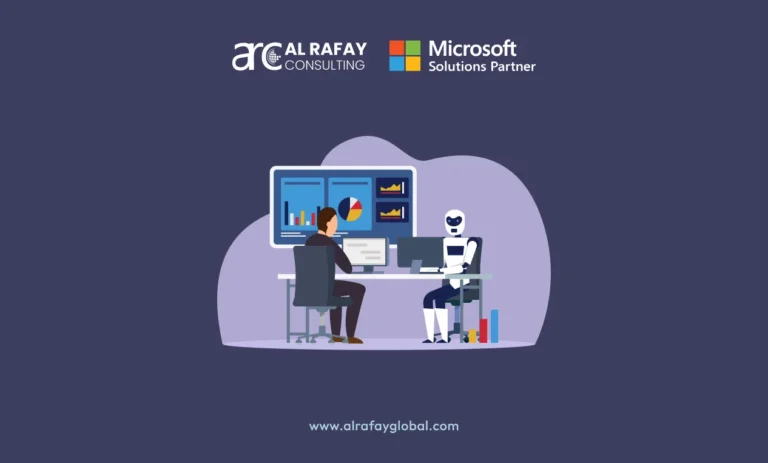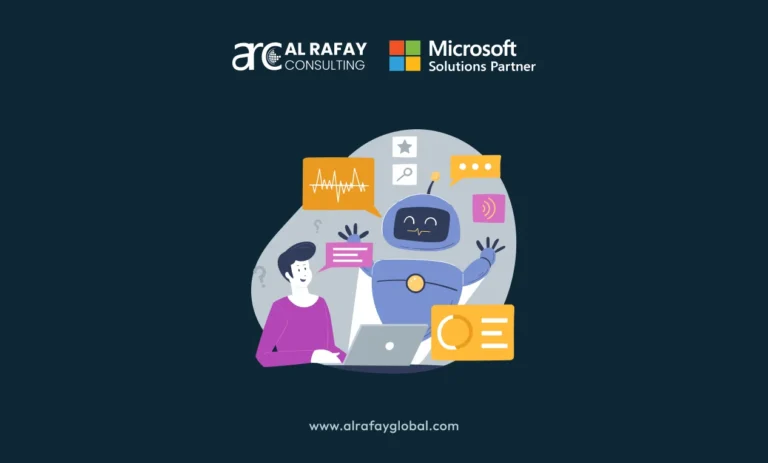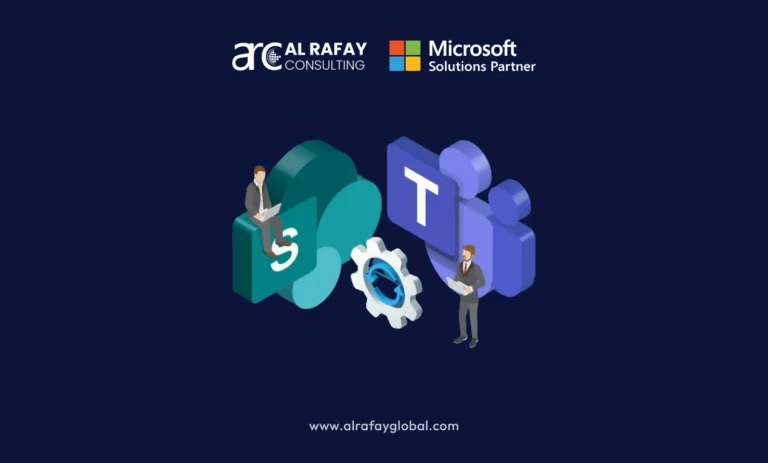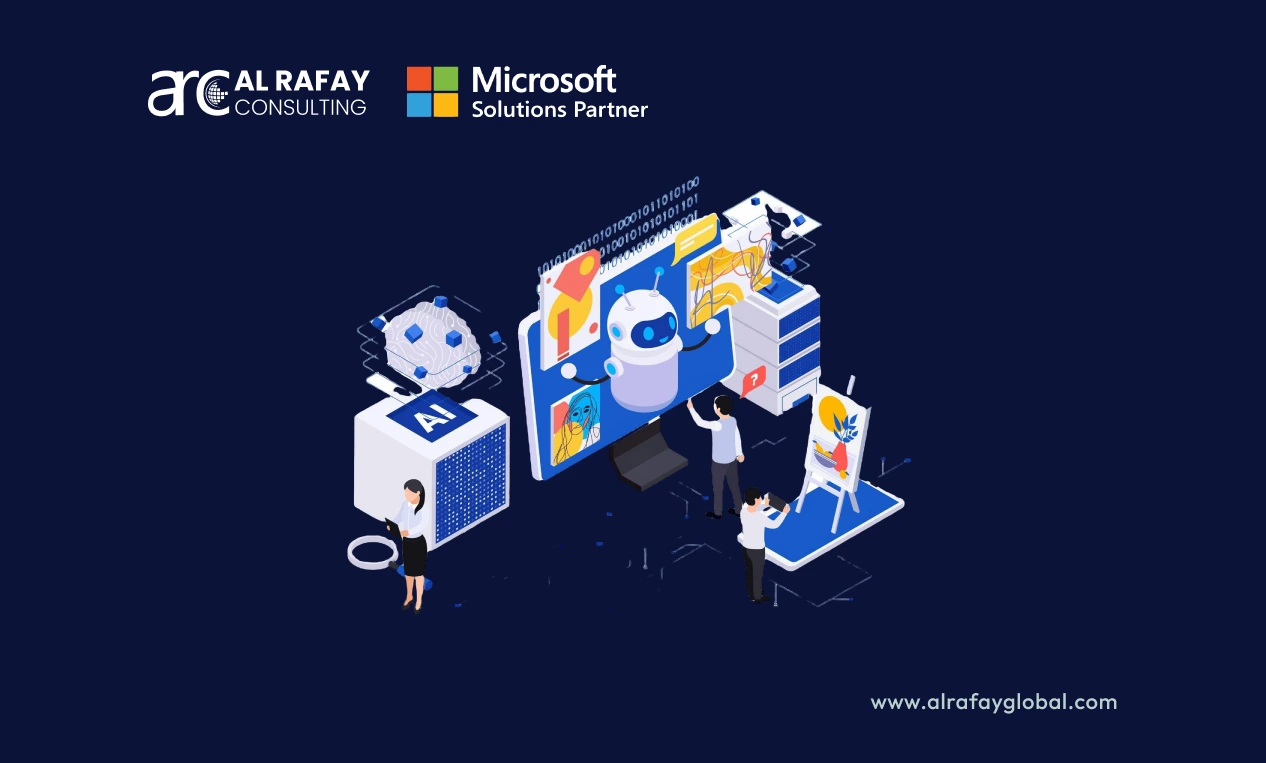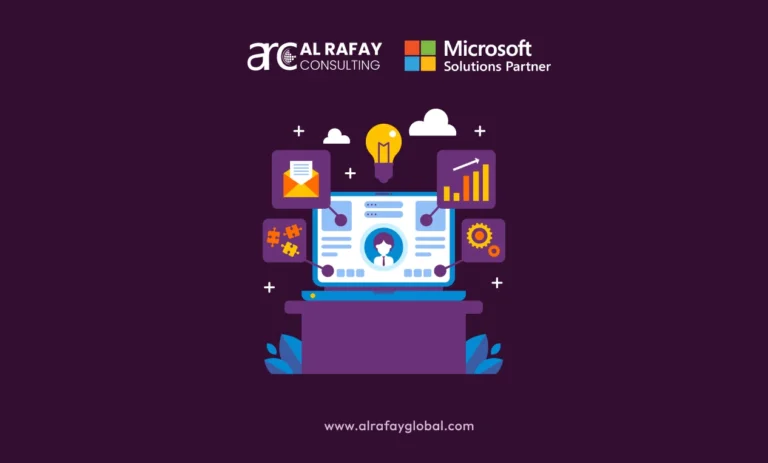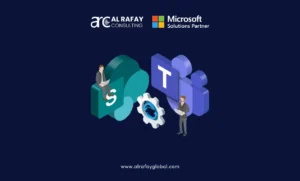In today’s digital age, knowledge is a critical asset that drives innovation, competitive advantage, and organizational success. The ability to manage knowledge efficiently has always been essential for businesses, but the advent of Artificial Intelligence (AI) is revolutionizing how knowledge is captured, organized, shared, and utilized. AI-powered Knowledge Management (KM) systems are transforming industries by automating processes, improving decision-making, and enabling continuous learning.
According to a study by Market.US, the global AI for knowledge management market is expected to reach $5,202.2 Million by 2023. This clearly shows the huge potential of the technology.
This blog will explore how AI is changing the landscape of Knowledge Management across various sectors, discuss the challenges and opportunities, and provide insights into the future of AI in KM.So, let’s start.
Understanding Knowledge Management
What is Knowledge Management?
Knowledge Management (KM) refers to the process of creating, sharing, using, and managing the knowledge and information of an organization. It involves capturing both tacit knowledge (unwritten, personal know-how) and explicit knowledge (documented information) to enhance productivity, foster innovation, and improve decision-making.
Types of Knowledge:
- Tacit Knowledge: This is the unspoken and unwritten knowledge held by individuals, such as personal experiences, insights, and intuitions. Tacit knowledge is often difficult to articulate but is crucial for problem-solving and innovation.
- Explicit Knowledge: This refers to knowledge that is documented, structured, and easily transferable. It includes data, manuals, documents, and other forms of recorded information that can be stored in databases and accessed by others.
- Tacit Knowledge: This is the unspoken and unwritten knowledge held by individuals, such as personal experiences, insights, and intuitions. Tacit knowledge is often difficult to articulate but is crucial for problem-solving and innovation.
Importance of KM in Business:
Effective KM enhances business productivity by ensuring that valuable knowledge is accessible to the right people at the right time. It aids in decision-making by providing comprehensive and relevant information, fosters innovation by encouraging the exchange of ideas, and helps organizations adapt to changes rapidly.
Challenges in Traditional Knowledge Management Systems
Traditional KM systems often face several challenges:
- Knowledge Silos: Information is often trapped within specific departments or teams, making it difficult for others to access and use.
- Accessibility Issues: Locating the right information at the right time is often a cumbersome and time-consuming process.
- Time-Consuming Retrieval: Manually searching through large volumes of data can be slow and inefficient.
- Human Errors: Manual data entry and classification can lead to errors, reducing the quality and reliability of the knowledge base.
- Knowledge Silos: Information is often trapped within specific departments or teams, making it difficult for others to access and use.
AI’s Role in Knowledge Management
The Intersection of AI and KM
AI is transforming KM by automating many of the tasks traditionally done by humans, such as data classification, retrieval, and analysis. Through technologies like machine learning and natural language processing (NLP), AI can analyze large volumes of data, identify patterns, and provide insights that were previously difficult to obtain.
How AI Enhances KM Processes:
- Machine Learning: AI algorithms learn from past data to improve the accuracy of knowledge retrieval and classification.
- Natural Language Processing (NLP): NLP enables machines to understand, interpret, and respond to human language, making it easier to find relevant information in natural language queries.
- Machine Learning: AI algorithms learn from past data to improve the accuracy of knowledge retrieval and classification.
Types of AI Tools in KM
- AI-Powered Search Engines: Utilize machine learning to understand search intent and provide more relevant results.
- Automated Tagging Systems: Automatically categorize and tag documents for easier retrieval.
- Chatbots and Virtual Assistants: Assist in real-time knowledge discovery and sharing by answering queries.
- Knowledge Graphs: Visualize relationships between different knowledge entities, making it easier to discover connections and insights.
- AI-Powered Search Engines: Utilize machine learning to understand search intent and provide more relevant results.
AI-Powered Knowledge Discovery
Advanced Search Capabilities
Traditional search methods rely on keyword matching, which often leads to irrelevant results. AI-powered search engines use semantic search and NLP to understand the context and intent behind a query, resulting in more accurate and efficient search outcomes. This capability is particularly valuable in large organizations with vast repositories of data.
Statistics: According to a study by Vorecol, AI-driven knowledge management systems can reduce search time by up to 30%, leading to significant productivity gains.
Content Personalization and Recommendations
AI systems analyze user behavior and preferences to offer personalized content recommendations, ensuring that employees and stakeholders have access to the most relevant information. This personalization not only improves user engagement but also enhances learning and decision-making.
Uncovering Hidden Insights
AI has the power to analyze unstructured data (such as emails, documents, and social media content) and uncover patterns or insights that may not be immediately apparent. Machine learning algorithms can detect trends, correlations, and anomalies, providing a deeper understanding of complex data sets.
AI for Knowledge Organization and Structuring
Automated Document Tagging and Metadata Generation
AI algorithms can automatically tag documents with relevant keywords and generate metadata, improving the organization of knowledge assets. This automation reduces the manual effort required to classify information and enhances the accuracy of data retrieval.
Creating Knowledge Maps and Graphs
AI can generate dynamic knowledge maps and graphs that visualize relationships between different knowledge entities, such as documents, authors, and topics. These visualizations help users quickly identify relevant information and understand the context, promoting better decision-making and collaboration.
Improving Information Flow and Reducing Redundancies
AI filters out redundant or irrelevant information, ensuring that knowledge is organized efficiently. By identifying duplicate content and removing unnecessary data, AI streamlines knowledge management processes, reducing the cognitive load on employees and improving overall efficiency.
AI for Collaboration and Knowledge Sharing
AI Chatbots and Virtual Assistants for Knowledge Sharing
AI chatbots and virtual assistants play a crucial role in facilitating knowledge sharing within organizations. These tools provide instant access to information by responding to employee queries in real-time, significantly reducing the time spent searching for information.
Example: A 2023 study by Gartner found that AI-driven chatbots can handle up to 85% of routine customer inquiries, freeing up human resources for more complex tasks.
Automating Knowledge Transfer in Remote Workplaces
In today’s remote and hybrid work environments, AI tools are essential for seamless knowledge transfer. AI-driven platforms support virtual collaboration by automatically capturing and sharing knowledge across teams, ensuring that information flows smoothly regardless of location.
Expertise Location and Knowledge Networks
AI can identify subject matter experts within an organization by analyzing communication patterns, project histories, and contributions to knowledge databases. This capability helps connect employees with the right experts and fosters a culture of collaboration and continuous learning.
AI for Continuous Learning and Knowledge Evolution
AI-Driven Learning Systems
AI-powered learning systems use KM databases to provide employees with personalized learning experiences. These systems identify gaps in knowledge and recommend relevant training materials, ensuring continuous skill development.
Keeping Knowledge Updated and Relevant
AI algorithms continuously scan and analyze content to identify outdated or irrelevant information, ensuring that knowledge databases remain current. This capability is particularly valuable in fast-changing industries where timely access to the latest information is crucial.
Facilitating Innovation through KM
By connecting disparate knowledge sources and identifying gaps, AI drives innovation within organizations. AI-powered KM systems enable teams to quickly access relevant information, generate new ideas, and collaborate effectively, fostering a culture of innovation.
Challenges and Limitations of AI in Knowledge Management
While AI offers significant benefits for Knowledge Management (KM), it is not without its challenges and limitations. Implementing AI-driven KM systems presents various technical, ethical, and operational concerns that organizations must address to fully leverage AI’s potential. Understanding these challenges is crucial for enterprise executives and technical leaders to make informed decisions about AI adoption in KM.
Data Privacy and Security Concerns
- Handling Sensitive Information:
AI systems used in KM often process vast amounts of sensitive data, including proprietary business information, personal employee data, and confidential customer details. These systems rely on aggregating and analyzing data from multiple sources to provide insights and facilitate decision-making. However, this data aggregation poses significant privacy risks if not managed correctly.
- Data Breaches and Cybersecurity Threats: AI-powered KM systems are attractive targets for cyberattacks due to the valuable data they contain. Unauthorized access or data breaches could expose sensitive information, leading to financial losses, legal consequences, and reputational damage.
- Regulatory Compliance: Organizations must comply with data protection regulations such as the General Data Protection Regulation (GDPR) in the EU or the California Consumer Privacy Act (CCPA) in the US. These laws mandate strict guidelines on how personal data should be collected, processed, stored, and shared. AI-driven KM systems must be designed to comply with these regulations, which may require robust encryption, data anonymization, and access controls.
- Data Breaches and Cybersecurity Threats: AI-powered KM systems are attractive targets for cyberattacks due to the valuable data they contain. Unauthorized access or data breaches could expose sensitive information, leading to financial losses, legal consequences, and reputational damage.
- Balancing Data Accessibility and Privacy:
AI-based KM systems need access to vast amounts of data to be effective, but they must also protect this data from unauthorized access or misuse. Striking a balance between data accessibility and privacy involves:
- Data Minimization: Only collecting the data necessary for the AI models to function effectively.
- Differential Privacy: Applying techniques that allow AI systems to learn from data without exposing specific information about individuals, ensuring data privacy even in highly granular datasets.
- Data Minimization: Only collecting the data necessary for the AI models to function effectively.
Bias and Accuracy in AI-Driven Knowledge Systems
- Data Bias and Its Impact on KM:
AI algorithms are trained on historical data to make predictions, classify information, or generate insights. If the training data contains biases—whether due to incomplete data, historical inequalities, or skewed sampling—the AI models will likely perpetuate these biases, leading to inaccurate or misleading outputs.
- Biased Knowledge Retrieval: In the context of KM, biased AI can result in the retrieval of incomplete or skewed information, which can affect decision-making. For example, if an AI system is trained predominantly on data from a specific region, it may not perform well for users in other regions due to a lack of contextual understanding.
- Reinforcement of Existing Silos: AI models that are not carefully designed can reinforce existing knowledge silos within an organization by prioritizing information from more frequently accessed sources, neglecting less popular but potentially valuable knowledge repositories.
- Biased Knowledge Retrieval: In the context of KM, biased AI can result in the retrieval of incomplete or skewed information, which can affect decision-making. For example, if an AI system is trained predominantly on data from a specific region, it may not perform well for users in other regions due to a lack of contextual understanding.
- Ensuring Fairness and Accuracy:
To mitigate bias, organizations must adopt a comprehensive approach:
- Diverse and Representative Training Data: Ensure that AI systems are trained on datasets that are representative of the diverse scenarios they will encounter in practice. This includes diverse geographical data, different user behaviors, and a wide range of content types.
- Continuous Monitoring and Feedback Loops: Regularly audit AI models for biased outcomes and retrain them as necessary. Establish feedback loops where users can report inaccurate or biased results to improve the system’s accuracy over time.
- Diverse and Representative Training Data: Ensure that AI systems are trained on datasets that are representative of the diverse scenarios they will encounter in practice. This includes diverse geographical data, different user behaviors, and a wide range of content types.
User Adoption and Trust Issues
- Resistance to AI-Driven Systems:
One of the most significant challenges in implementing AI for KM is gaining user trust and ensuring widespread adoption. Users may be skeptical about AI systems due to several reasons:
- Fear of Job Displacement: Employees may perceive AI as a threat to their jobs, especially in roles heavily reliant on knowledge retrieval and management.
- Lack of Transparency: AI systems, especially those based on complex machine learning models, are often seen as “black boxes” that make decisions without clear explanations. This lack of transparency can lead to mistrust among users, who may be wary of relying on AI-generated insights.
- Fear of Job Displacement: Employees may perceive AI as a threat to their jobs, especially in roles heavily reliant on knowledge retrieval and management.
- Building Trust and Encouraging Adoption:
To overcome these challenges, organizations should focus on transparency, education, and communication:
- Explainable AI (XAI): Develop AI systems that provide clear, understandable explanations for their outputs. For instance, when an AI system retrieves a document, it should explain why it chose that document over others.
- User Education and Training: Conduct regular training sessions to educate employees about the benefits, limitations, and safe use of AI-driven KM tools. Demonstrating the AI’s capabilities and addressing concerns directly can help alleviate fears and foster trust.
- Inclusive Implementation Strategies: Involve users in the design and deployment of AI systems. Solicit feedback from a diverse group of employees to ensure the AI tools meet their needs and address their concerns.
- Explainable AI (XAI): Develop AI systems that provide clear, understandable explanations for their outputs. For instance, when an AI system retrieves a document, it should explain why it chose that document over others.
Data Quality and Integration Issues
- Data Quality Challenges:
The effectiveness of AI-driven KM systems heavily depends on the quality of the underlying data. Poor-quality data, such as outdated information, duplicate records, or incomplete datasets, can lead to incorrect or misleading insights.
- Data Silos and Fragmentation: Data is often spread across multiple systems, departments, or formats, making it challenging to integrate and clean for AI use. Fragmented data can cause inconsistencies, reducing the accuracy of AI-driven KM systems.
- Unstructured Data Complexity: A significant portion of organizational knowledge is unstructured (emails, reports, social media, etc.). Extracting meaningful insights from such data requires advanced NLP capabilities, which may not always be available or effective.
- Data Silos and Fragmentation: Data is often spread across multiple systems, departments, or formats, making it challenging to integrate and clean for AI use. Fragmented data can cause inconsistencies, reducing the accuracy of AI-driven KM systems.
- Strategies to Ensure Data Quality:
- Data Governance Frameworks: Establish strong data governance policies that define data ownership, standardization, and quality control measures.
- Data Cleansing and Normalization: Regularly clean and normalize data to remove duplicates, correct inaccuracies, and ensure consistency across all sources.
- AI-Augmented Data Preparation: Use AI tools themselves to automate data cleaning, deduplication, and classification tasks, improving the data quality for subsequent AI applications.
- Data Governance Frameworks: Establish strong data governance policies that define data ownership, standardization, and quality control measures.
Technical Limitations and Scalability Concerns
- Computational Demands and Infrastructure:
AI-driven KM systems require significant computational resources for data processing, model training, and inference. Organizations must invest in robust IT infrastructure, including high-performance servers, data storage, and cloud computing solutions.
- Scalability Challenges: As organizations grow, their knowledge repositories expand, requiring AI systems to scale accordingly. This may involve additional investments in hardware, software, and skilled personnel to manage and maintain these systems.
- Integration with Legacy Systems: Many organizations have legacy KM systems that may not be compatible with modern AI tools. Integrating AI with existing infrastructure can be complex and costly, often requiring custom development or third-party solutions.
- Scalability Challenges: As organizations grow, their knowledge repositories expand, requiring AI systems to scale accordingly. This may involve additional investments in hardware, software, and skilled personnel to manage and maintain these systems.
- Overcoming Technical Limitations:
- Cloud-Based AI Solutions: Leverage cloud-based AI platforms that offer scalable infrastructure and advanced AI capabilities, reducing the need for extensive on-premise investments.
- Hybrid AI Models: Implement hybrid AI models that combine on-premise and cloud-based solutions to balance performance, cost, and security requirements.
- Cloud-Based AI Solutions: Leverage cloud-based AI platforms that offer scalable infrastructure and advanced AI capabilities, reducing the need for extensive on-premise investments.
How Al Rafay Consulting’s Enterprise AI Platform is Revolutionizing Knowledge Management
Introduction to Al Rafay Consulting’s Enterprise AI Platform
Al Rafay Consulting’s Enterprise AI Platform “InsightsARC” is designed to address modern KM challenges by providing a comprehensive suite of AI-driven tools that enhance knowledge discovery, organization, sharing, and continuous learning.
Key Features of the Platform in Knowledge Management
- AI-Powered Search: Utilizes NLP and machine learning to deliver highly relevant search results.
- Automated Tagging and Classification: Automatically categorizes documents and generates metadata for easy retrieval.
- Collaboration Tools: Supports seamless knowledge sharing and collaboration across teams.
- AI-Driven Insights: Analyzes data to uncover hidden patterns and provide actionable insights.
- AI-Powered Search: Utilizes NLP and machine learning to deliver highly relevant search results.
Conclusion
AI is fundamentally transforming Knowledge Management across industries by automating processes, enhancing collaboration, and driving innovation. Despite challenges such as data privacy, bias, and user adoption, the benefits of AI in KM are immense. As organizations continue to adopt AI-driven KM systems, they will be better equipped to navigate the complexities of the modern business environment and remain competitive in the years to come.
If you want to develop or implement a custom and advanced enterprise ai platform in your organization, then contact our experts at Al Rafay Consulting to book a demo of our indigenous InsightsARC platform.

